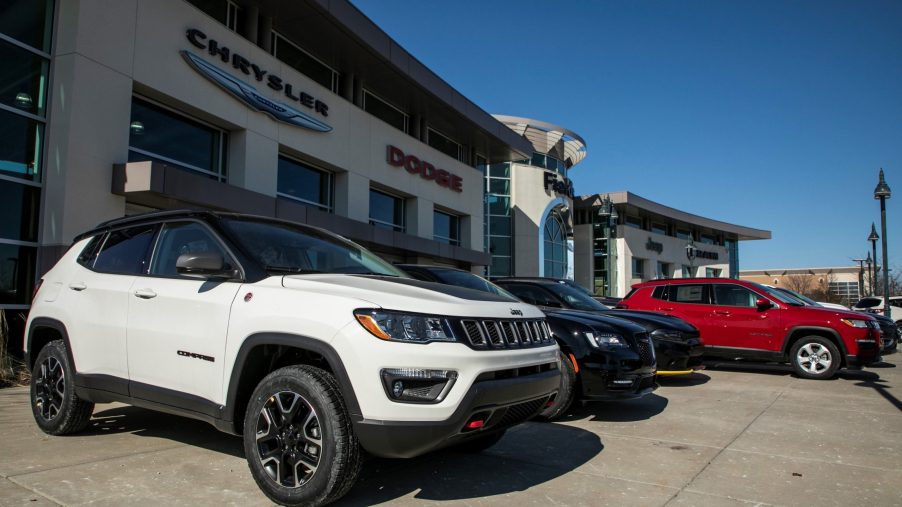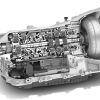
Expanded Chrysler, Dodge, and Ram Lawsuit Over Dangerous Headrests Persists
Imagine driving down the road and getting bonked on the back of the head, only to discover that the unexpected force came from a faulty headrest. That is what’s happening to owners of Chrysler, Dodge, and Ram vehicles.
Despite the filing of several class-action lawsuits, the problem persists, and drivers are not too happy about it. Vehicles equipped with active head restraint (AHR) systems are presenting a dangerous safety concern.
If you think your car could be affected, continue reading to find out what to do about this ongoing issue.
A problem that isn’t going away
In 2013, Chrysler Group LLC issued a safety recall for vehicles equipped with the AHR function. Close to 500,000 automobiles were affected worldwide. The auto manufacturer explained the system was “designed to mitigate neck injuries by automatically moving forward during certain rear-impact collisions.” At that time, they determined that a microcontroller was causing the problem.
Unfortunately, this didn’t fix the issue, and the active head restraint system is still being installed in Chrysler vehicles. Owners report that the headrest is deploying with no warning and occurs randomly, even when no crash is involved. Car Complaints revealed the use of cheap plastic could not handle the internal pressures of the system. They stated the AHR is designed to protect occupants from whiplash during rear-end crashes, saying, “the headrest propels forward to cushion the head to decrease the chance of cervical injuries.”
There are reports of “exploding” headrests, and some consumers are using zip ties to prevent the headrest from inadvertently deploying. Top Class Actions reported that Chrysler has known about the problem since 2010 and has yet to offer a solution. They estimate “there are hundreds of thousands of Chrysler vehicles equipped with the defective AHR, and there is no way of knowing when the AHR in the headrest will spring forward.”
Class action lawsuits filed
The National Highway and Traffic Safety Administration (NHTSA) started an investigation in 2019 to determine why the active headrest restraint system was inadvertently deploying. Last year, class action lawsuits were filed in Florida and California to address the ongoing problem. Owners are concerned about dangerous driving conditions and are being told that it will cost upwards of $900 to fix the problem with no help from Chrysler.
According to ClassAction.org, another lawsuit filed in Massachusetts against Chrysler claims the cheap plastic components used in the headrest system are the culprit. The case states, “when the compound coating the striker pin contacts the plastic polymer sled – and the two components are subject to the pressure of a ‘loaded’ headrest – the plastic can crack due to the stress, leading the headrest to burst apart.”
The Chrysler, Dodge, Jeep and Ram models affected and what owners can do
The class action lawsuits claim the following vehicles may be affected:
- 2010-2018 Dodge Journey
- 2010-2011 Dodge Nitro
- 2010-2012 Jeep Liberty
- 2010-2017 Jeep Patriot or Compass
- 2010-2012 Dodge Caliber
- 2010-2018 Dodge Caravan
- 2011-2018 Dodge Ram C/V
- 2011-2018 Dodge Durango
- 2011-2018 Jeep Grand Cherokee
- 2010-2014 Chrysler Sebring
- 2010-2014 Dodge Avenger
- 2011-2018 Chrysler Town & Country
- 2011-2018 Chrysler 200
- 2011-2018 Chrysler 300
If you are the owner of one of the above-listed vehicles, the best cause of action is to contact your local dealership to determine what can be done to prevent the AHR from deploying. You can also contact FCA Customer Care directly at 1-800-334-9200.
FCA recently sent a letter to current owners of the 2014 to 2018 Dodge Durango and Jeep Grand Cherokee models. It states the three-year warranty on the Active Head Restraint is being extended to 10 years/unlimited miles. They are also offering reimbursement for previous repairs paid by the consumer to correct the problem. Hopefully, this means help is on the horizon for Chrysler vehicle owners.


